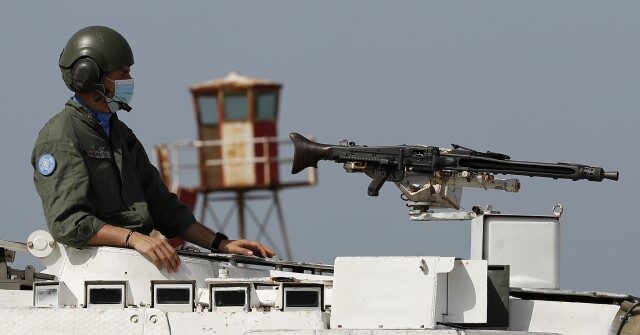In a recent interview with Danish media, a former U.N. soldier identified only as “Michael” shared revealing insights about the United Nations peacekeeping operations in Lebanon, particularly concerning the influence of Hezbollah. Having been assigned to the United Nations Truce Supervision Organization (UNTSO) approximately a decade ago, Michael recounted how the U.N. peacekeeping mission in Lebanon operated under severe constraints imposed by the Iran-backed militant group. It was reported that UN peacekeepers could patrol only in regions where Hezbollah permitted, highlighting a troubling dynamic that undermined their authority and effectiveness in the area. Michael’s claims painted a picture of a peacekeeping force that was “completely at Hezbollah’s mercy,” unable to conduct operations freely due to the group’s overwhelming presence and power.
Michael’s role with UNTSO involved monitoring compliance with U.N. Security Council resolution 1701, which mandated the withdrawal of Hezbollah forces from southern Lebanon. However, he noted that Hezbollah not only remained in the region but exerted considerable control over the U.N. Interim Force in Lebanon (UNIFIL), established in 1978 to maintain peace and security in the area. The lack of freedom of movement for U.N. personnel was stark; for instance, Michael described a restriction on nighttime operations for fear of encountering Hezbollah. Such limitations contrasted sharply with the unimpeded activities of Hezbollah during the hours the U.N. forces refrained from patrols, allowing the militant group to operate without oversight when the sun went down.
The situation for UNTSO observers was precarious; they were often obstructed from entering certain districts in southern Lebanon by individuals associated with Hezbollah. Michael highlighted a systematic effort by the group to control the narrative and environment surrounding their operations, stating that “civilians,” likely affiliated with Hezbollah, would photograph Israeli military installations while U.N. observers had to withdraw and watch from a distance, as instructed. The pressure on U.N. personnel to remain passive during such observations portrayed an alarming complicity and rendered them powerless to intervene or report Hezbollah’s questionable activities effectively.
Moreover, Michael detailed instances where Hezbollah’s influence extended to the U.N. personnel themselves, citing a problematic relationship with interpreters who were sympathetic to the militant group’s agenda. This internal divisiveness within the U.N. team impeded their operational integrity. His frustrations extended to reporting protocols, with many of his allegations regarding unlawful conduct by Hezbollah going unaddressed at higher levels within UNTSO. This experience led him to a stark conclusion about the ineffectiveness and incompetence of the U.N. in addressing violations by Hezbollah in Lebanon, underscoring a pattern he observed during his service in various conflict zones.
Michael’s revelations coincide with worsening tensions between Israel and UNIFIL amid ongoing military operations in Lebanon, where the Israeli Defense Forces (IDF) have accused the U.N. force of neglecting to address Hezbollah’s illicit activities. Israeli officials have urged U.N. Secretary-General Antonio Guterres to remove UNIFIL troops from the area, labeling them as potential hostages to Hezbollah’s manipulations. Amid these accusations, Israeli Prime Minister Benjamin Netanyahu went so far as to assert that the U.N. should redirect its concerns toward Hezbollah, which he claimed was using U.N. personnel as human shields during military confrontations.
In response to Israel’s allegations, UNIFIL has stressed the importance of protecting its personnel and the integrity of its operations. They reiterated the U.N.’s stance on the need for all parties to respect the inviolability of U.N. premises and personnel. The growing rift between Israel and UNIFIL, compounded by Michael’s unsettling accounts of Hezbollah’s control over U.N. operations in Lebanon, further complicates the already fragile situation in the region. Overall, Michael’s testimony serves as a critical examination of the operational effectiveness of the U.N. in conflict zones and raises serious questions about its ability to uphold peace and security when faced with armed groups like Hezbollah that challenge its authority.

